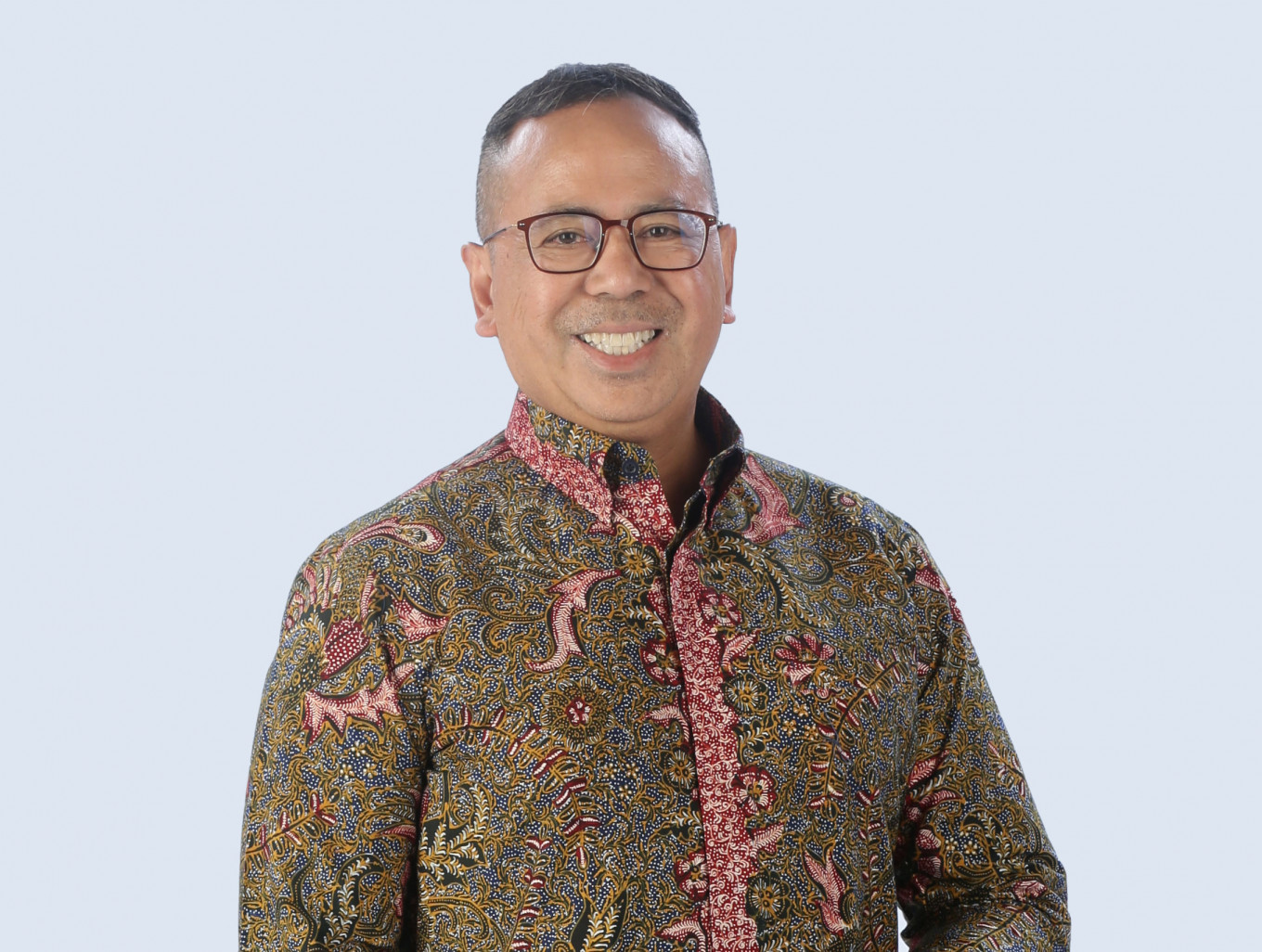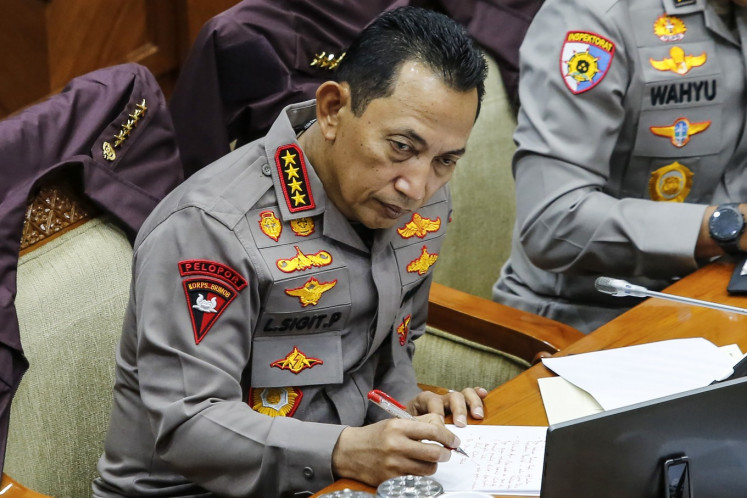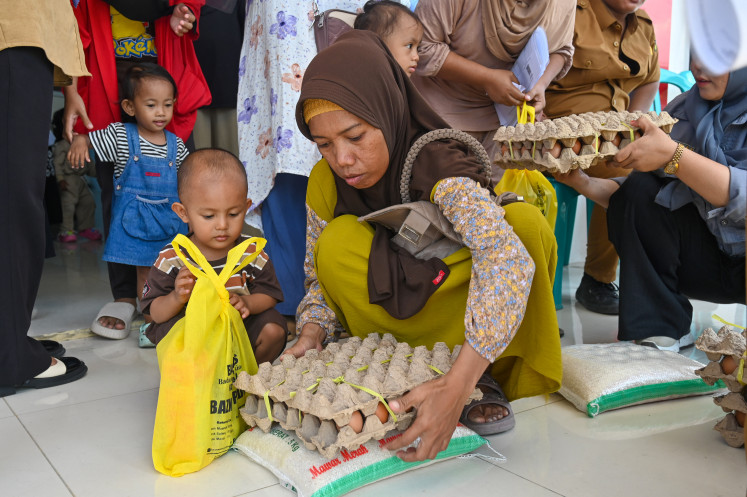Popular Reads
Top Results
Can't find what you're looking for?
View all search resultsPopular Reads
Top Results
Can't find what you're looking for?
View all search resultsInsight: Understanding sovereign wealth funds and their application in Indonesia
Change text size
Gift Premium Articles
to Anyone
T
oward the end of 2020, amid a world grappling with unprecedented challenges, Indonesia took a bold step in securing its economic future: establishing its first sovereign wealth fund (SWF), the Indonesia Investment Authority (INA).
This marked a new chapter as part of the nation’s journey in accelerating its sustainable development to become a developed country by 2045. INA was created to harness the country's potential, catalyzing investment in economic development and diversification, while responsibly and sustainably managing the nation's wealth to build a secure future for generations of Indonesians.
To better understand INA’s role for Indonesia, it is important to first understand the role of SWFs in general. According to Global SWF, an SWF is an investment vehicle owned by a national or regional government that buys, holds and sells securities and/or assets on behalf of its citizenry in pursuit of financial and/or economic returns. Some SWFs focus exclusively on foreign investments, others concentrate solely on domestic investments and some allocate their resources both domestically and internationally.
SWFs have increased dramatically in recent years in terms of their prominence and assets, playing a significant role in the global capital landscape. In 2023 alone, SWFs invested $125 billion globally and managed over $11 trillion of assets – a historic high. These funds can be broadly classified into three categories based on their investment mandates: fund stabilization fund, savings funds and strategic or development funds.
Stabilization or “rainy day” funds act as financial buffers, accumulating fiscal surpluses during prosperous years and covering fiscal deficits during downturns. Savings funds are designed to ensure long-term wealth transfer and financial security without immediate obligations. Strategic or development funds aim for both financial returns and economic goals, contributing to domestic development and often attracting foreign capital. Some SWFs combine these mandates to fulfill multiple national objectives.
According to Global SWF, half of the capital managed by SWFs comes from the revenues derived from the sale of commodities. The other half comes from foreign exchange reserves, budget surpluses, and government asset sales and privatizations.
Some SWFs have not been injected with significant wealth but have received stakes in state-owned companies. Other SWFs, such as INA, and the recently established Maharlika Wealth Fund of the Philippines, were seeded with an initial amount of capital and are expected to attract foreign investment into their respective countries to increase their capital under management.
INA is one such example of a multi-mandate SWF, with a unique role that includes acting as a savings fund by providing attractive and sustainable returns; a development fund to support national strategic initiatives; and a co-investment fund to catalyze foreign direct investment (FDI) into Indonesia and collaborate with reputable investment partners. For INA to successfully execute its mandate, it must perform all three roles in parallel. This can be accomplished by investing in projects that deliver both attractive risk-adjusted returns and positive development impacts in key sectors such as transport and logistics, green energy and transformation, digitalization and digital infrastructure and health care.
The global investment landscape is currently filled with uncertainties, from economic slowdowns and geopolitical tensions to inflation risks and climate change. These factors exacerbate economic complexities, making it difficult for global investors to find suitable investments that balance commercial and development goals. Given that 83 percent of the global population lives in developing economies, emerging markets, despite their challenges, offer opportunities for higher growth and returns. For example, Indonesia, with its stable democracy, over 70 percent of the population aged between 15 and 64, strong post-COVID recovery and significant natural wealth presents a compelling case for investors seeking potential opportunities
Key challenges that international investors must address in emerging markets include a lack of scalable, “investment ready” deal pipelines, sectoral regulatory frameworks that differ from those in developed markets, challenging valuation expectations, and a lack of understanding from local asset owners regarding the typical governance required by global investors. In many markets, such challenges are exacerbated by the inability of institutional investors to find trusted local partners who can navigate such complexities.
For INA, the mandate to attract foreign direct investment (FDI) and co-invest with both global and domestic partners, embedded in its establishing laws, is integral to its mission. This approach is crucial in deploying capital effectively and sharing investment risks, thus addressing the very barriers that often deter international investors. By leveraging its domestic expertise and networks, INA not only aims to navigate local market complexities but also understands the perspectives of institutional investors and adheres to global best practices in governance and transparency. This strategy has helped establish trust and create opportunities for collaborative investments.
Since commencing operations in 2021, INA has become a Full Member of the International Forum of Sovereign Wealth Funds (IFSWF) alongside some of the world’s leading SWFs such as Singapore’s GIC, the UAE’s ADIA, and Australia’s Future Fund. In less than four years, INA has invested more than $3 billion into Indonesia, across the key sectors, with half of this capital coming from reputable investors.
Being Indonesia’s SWF is a tremendous responsibility for INA.In our continued mission to support Indonesia's economic development and prosperity, we hope that by recognizing the unique aspects of INA – its comprehensive mandate, commitment to transparency, and strategic partnerships – the public can better understand its role in fostering Indonesia's economic development. (*)
Dr. Ridha D.M. Wirakusumah is CEO at INA.
The ideas expressed here do not represent The Jakarta Post's views and policies.











